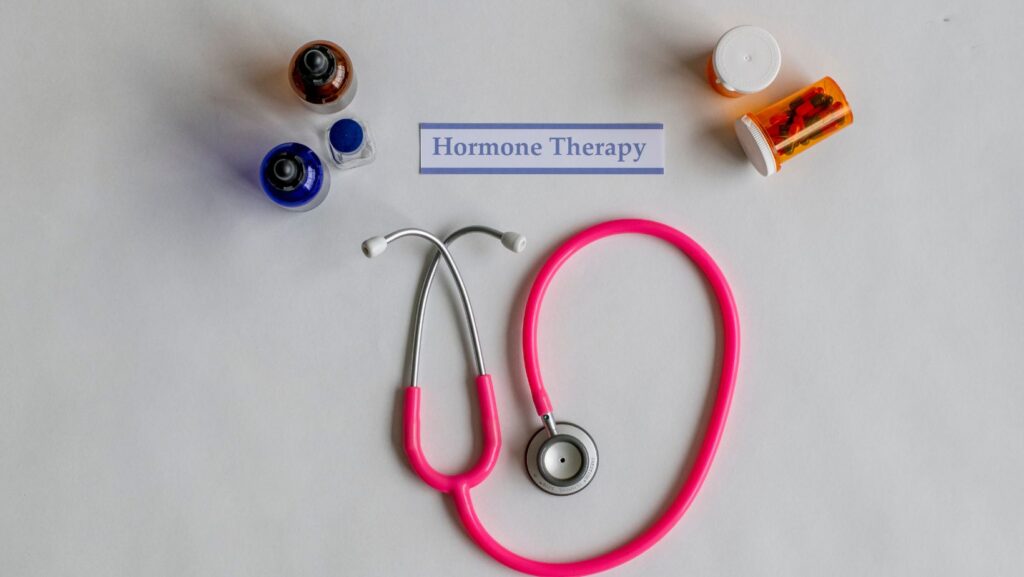
In recent years, hormone therapy has emerged as a beacon of hope for individuals seeking to enhance their quality of life. As people age or face certain health conditions, hormonal imbalances can disrupt physical and emotional well-being. Hormone therapy offers a scientific approach to restoring balance, potentially alleviating symptoms and improving overall health.
Understanding the science behind hormone therapy reveals its potential to address a variety of issues, from menopause to thyroid disorders. By carefully adjusting hormone levels, this treatment can help regulate mood, energy, and even cognitive function. As researchers delve deeper into its mechanisms, they’re uncovering new ways hormone therapy can support a healthier, more fulfilling life.
As awareness grows, more people are turning to hormone therapy to reclaim their vitality. This article explores the scientific principles driving this transformative treatment, shedding light on how it can be a vital tool in improving life quality for many.
Understanding Hormone Therapy
Hormone therapy aims to balance hormones in individuals facing imbalances due to age or health conditions. It can significantly enhance mood and energy levels.
What Is Hormone Therapy?
Hormone therapy involves providing hormones to the body to correct deficiencies or imbalances. Medical practitioners may use hormone therapy for conditions like menopause or hypothyroidism, aiming to improve symptoms by stabilizing hormone levels. For example, during menopause, estrogen and progesterone levels drop, potentially causing discomfort. Hormone therapy can address these imbalances, offering relief.
Types Of Hormone Therapy
Various types of hormone therapy exist, depending on the specific hormones involved:
- Estrogen Therapy: Primarily used for menopausal symptoms. It reduces hot flashes and prevents bone loss.
- Testosterone Therapy: Suitable for those experiencing low testosterone levels. It may boost energy and cognitive function.
- Thyroid Hormone Therapy: Addresses underactive thyroid glands by supplementing thyroid hormones.
- Bioidentical Hormone Therapy: Uses hormones chemically identical to those the human body produces. This option often attracts individuals seeking a more natural approach.
Each type targets specific imbalances, offering tailored treatment options for different conditions.
The Science Behind Hormone Therapy
Hormone therapy uses scientific understanding to address hormonal imbalances effectively. It has enhanced treatments in women’s and men’s health.
Biological Mechanisms
Hormones are chemical messengers influencing various bodily processes. These include mood, energy, and metabolism. When hormone levels become imbalanced, they can lead to symptoms like fatigue and mood swings. Hormone therapy works by restoring these levels to their natural state. For instance, bioidentical hormone therapy uses hormones identical in structure to those produced by the human body. This can reduce side effects and improve efficiency. Scientists have discovered that specific receptors interact with hormones to modulate bodily responses. Adjusting therapy to target specific receptors can enhance the therapy’s effectiveness.
Recent Scientific Advances
Recent studies provide insight into hormone therapy’s benefits and mechanisms. Researchers have developed more precise methods for measuring hormone levels. These advancements allow personalized therapies tailored to individual needs.

Bioidentical hormone therapy is gaining attention due to its customized approach. It offers an alternative to traditional synthetic hormones. Studies have also explored novel delivery methods like transdermal patches which minimize first-pass metabolism in the liver. Ongoing research continues to refine these therapies, improving efficacy in managing symptoms related to imbalances.
Quality Of Life Improvements
Hormone therapy significantly enhances the quality of life by addressing hormonal imbalances. This section explores the positive impacts on both physical and mental health.
Physical Health Benefits
Hormone therapy often leads to improvements in physical health. It helps maintain bone density, thereby reducing the risk of osteoporosis. By balancing hormones, individuals experience increased energy levels and reduced fatigue. Improved metabolic function contributes to better weight management and muscle mass maintenance. Certain therapies cater to specific needs; for instance, bioidentical hormone therapy provides options that are chemically identical to naturally produced hormones, matching precisely the body’s hormonal requirements.
Mental Health Benefits
Mental health sees notable benefits from hormone therapy. It often alleviates symptoms of depression and anxiety, leading to enhanced mood stability. Individuals experience improved cognitive functions, including better memory and concentration, as balanced hormone levels return the body to a more harmonious state. Additionally, a decrease in mood swings enhances overall emotional well-being, allowing individuals to engage more fully in their daily activities. This psychological support is crucial for maintaining a high quality of life.
Potential Risks And Considerations
Hormone therapy offers numerous benefits, but it’s essential to consider potential risks. Understanding side effects and long-term implications helps individuals make informed decisions.
Side Effects
Hormone therapy may cause side effects, including headaches, mood swings, and nausea. For estrogen or bioidentical hormone therapy, risk of blood clots and stroke can increase, particularly in certain populations. Careful monitoring and individualized treatment plans minimize these risks.
Long-term Implications
Long-term hormone therapy might have implications for heart and bone health. Extended use of certain hormones may elevate cancer risk, so continuous assessment by healthcare providers is crucial. Personalized therapies consider these factors, helping maintain a balance between benefits and risks.
Patient Experiences And Testimonials
Patient experiences with hormone therapy provide valuable insights into its impact on improving quality of life. Individuals share both successes and challenges encountered during treatment.
Success Stories
Many patients report significant improvements in their conditions after undergoing hormone therapy. For instance, women experiencing menopause symptoms find relief through estrogen therapy, noting reduced hot flashes and mood swings.

Those with low testosterone levels cite increased energy, better libido, and improved muscle tone after testosterone therapy. Bioidentical hormone therapy is praised for its natural approach, with users experiencing fewer side effects and better alignment with their body’s needs. Testimonials highlight the enhanced cognitive function and mood stability, enabling individuals to lead more fulfilling lives.
Common Challenges
Despite notable successes, some patients face challenges with hormone therapy. Adjusting dosages can initially lead to side effects like headaches or mood fluctuations. Reports indicate a need for ongoing communication with healthcare providers to manage these issues effectively. Patients occasionally express concerns over the risk of blood clots and other serious side effects, emphasizing the importance of personalized treatment plans. For some, achieving the right hormone balance takes time and persistence, requiring tailored adjustments for optimal results.
Conclusion
Hormone therapy stands out as a promising solution for those grappling with hormonal imbalances, offering a path to enhanced quality of life. By targeting specific imbalances, it provides tailored treatment options that address both physical and mental health challenges. As scientific advancements continue to refine these therapies, individuals can look forward to more effective and personalized options. However, it’s crucial to weigh the benefits against potential risks, necessitating careful monitoring and collaboration with healthcare providers. With ongoing research and patient experiences shedding light on its impact, hormone therapy remains a vital consideration for those seeking to restore balance and vitality.












